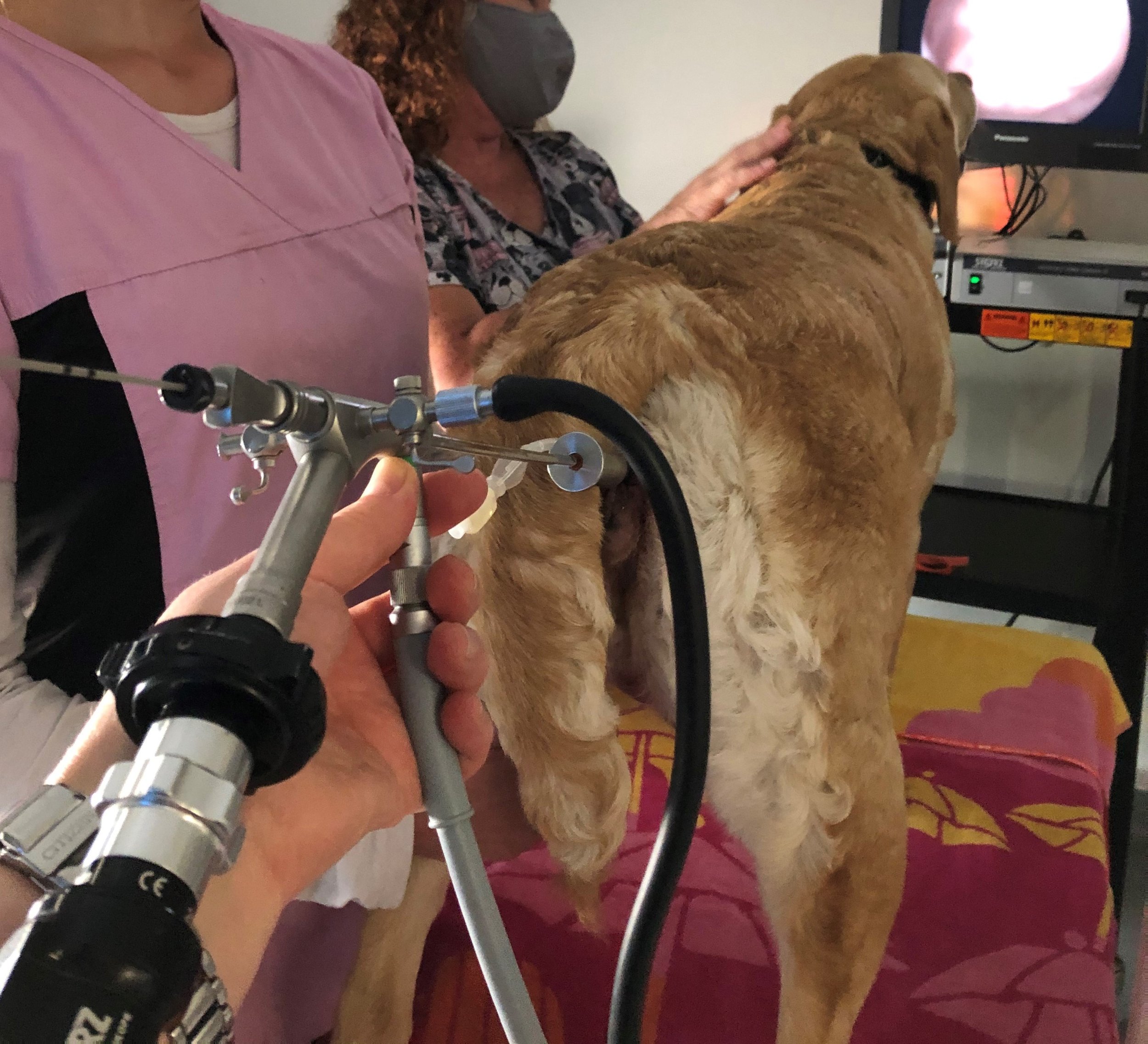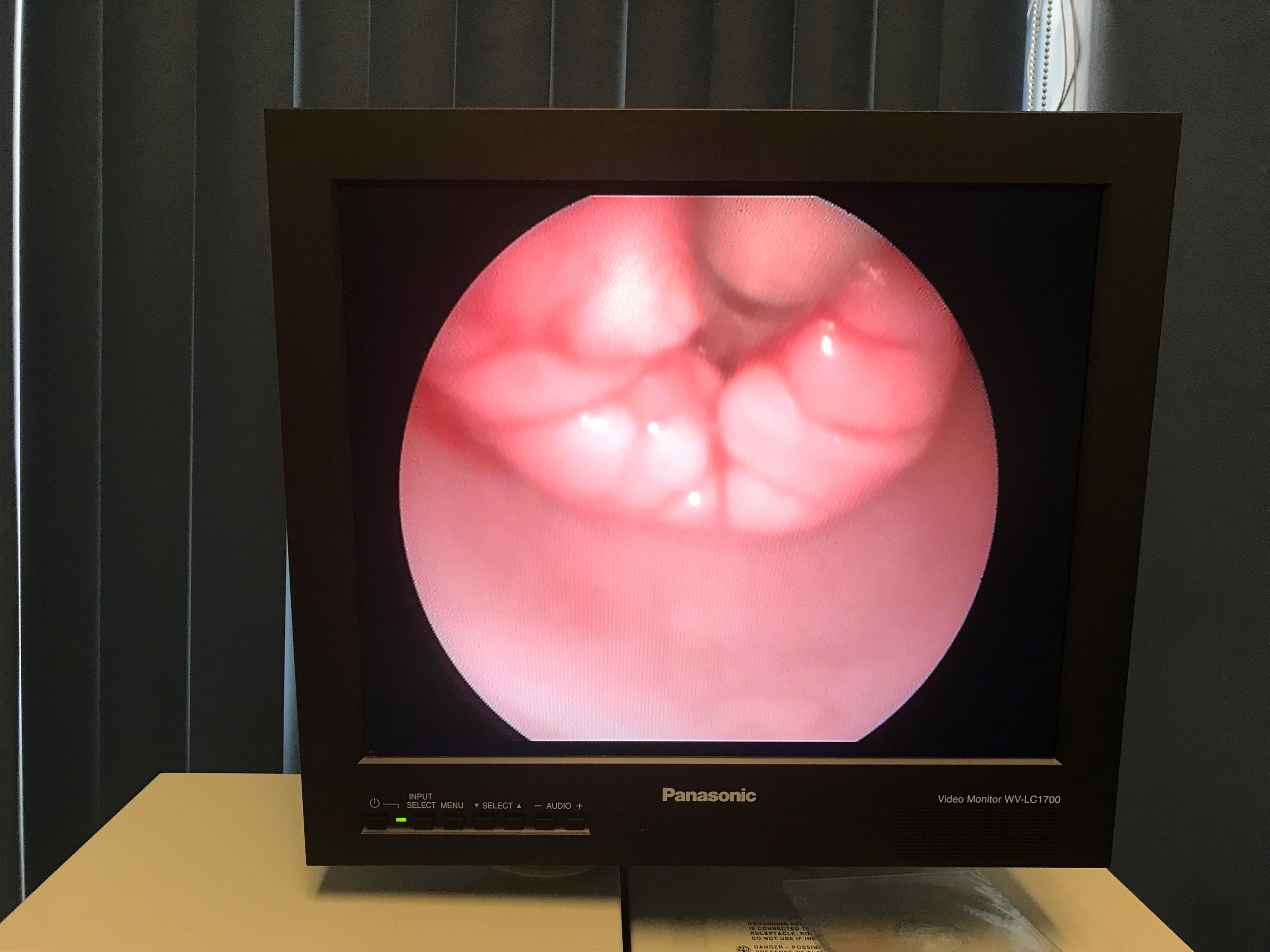Artificial Insemination
The type of insemination depends mostly on semen type and quality (eg. transcervical inseminations (TCIs) for all frozen semen breedings) and in rare cases on timing (eg. TCIs are recommended if the first and only breeding is very late in bitch’s cycle and there is a risk to miss, as the cervix may be closed by that time, but the eggs may still be available).
Vaginal Artificial Insemination (AI)
This type of breeding is recommended when the male is either inexperienced or unable to achieve a tie. The biggest advantage of having an artificial insemination is that a full analysis of the semen can be performed, ensuring that the sample is adequate in concentration (with minimal prostatic fluid) and motility, and assessed for abnormalities. Vaginal AI lowers the risk of injury if unfamiliar dogs are used.
Vaginal AI with fresh semen is generally performed on the same days of heat as a natural breeding would be. With fresh chilled semen, as capacitation time is shorter, we prefer to inseminate day 2, 3 or 4 after ovulation. Vaginal AI is not performed or recommended with frozen semen breedings.
Transcervical Insemination (TCI)
The biggest advantage of TCI is that the bitch does not require general anesthesia for it to be performed and it does deliver semen into the uterine lumen, similar to as in surgical insemination. For TCI, the bitch is fully awake and in a standing position. In very rare cases we need a mild sedation. During the procedure, an endoscope is inserted vaginally and pushed through the vaginal canal towards the cervical opening (also called external os). A small catheter is threaded directly into the cervical opening and the semen sample is injected through the catheter. This procedure can be observed on screen by all participants and can take from 3-30 minutes, 10 minutes on average. Having a concentrated semen sample injected directly into the uterus increases the number of spermatozoa that will reach the eggs, thus increasing the chances of conception. In the rare instance that the catheter cannot pass through the cervical opening; whether it is due to anatomical abnormality or position of the cervix, a surgical insemination may be recommended. The main disadvantage of TCI over vaginal AI is cost, due to the specialty equipment and skills necessary. TCI can be used for fresh, chilled, or frozen semen and is recommended for bitches with fertility problems, as well as in cases where semen quality is impaired, like frozen semen and semen from subfertile studs.
Surgical Artificial Insemination (SAI)
Surgical artificial inseminations are only performed under special circumstances, such as if there are challenges getting the transcervical insemination catheter into the cervix due to its anatomical positioning. SAI is performed under general anesthesia.
As all of our veterinarians are experienced in TCIs and have good success using it, for welfare reasons we do not offer routine surgical inseminations.

Vaginal artificial insemination

Transcervical artificial insemination

Cervix with TCAI catheter
